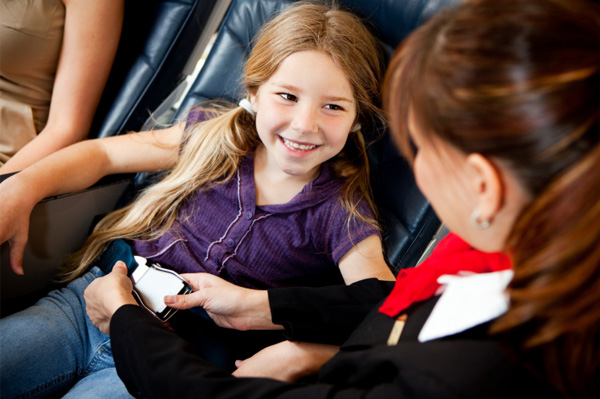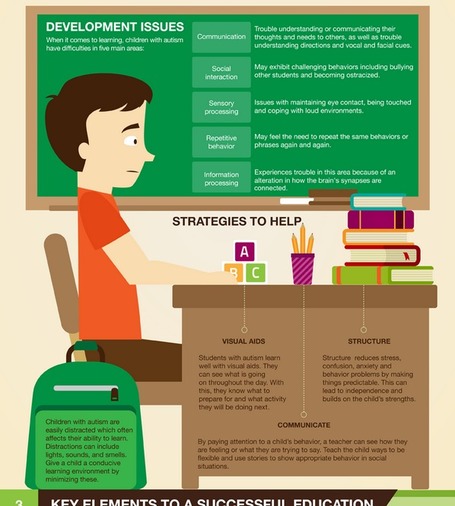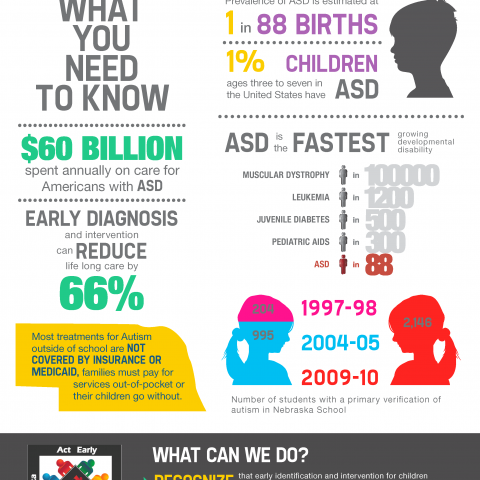You might have seen a child toe-walking, or covering their ears with their hands. But instead of just observing, have you ever wondered what it might be like to experience the world like a child with autism? Autism, a disorder of neural development, affects the way a child’s brain processes information and can have serious effects on communication, social interaction, and repetitive, stereotypic movements. It is a mysterious disorder in that scientists have yet to identify the cause, but the number of children diagnosed continues to rise. What is perhaps the most enigmatic about autism spectrum disorders, however, is the sensory abnormalities described and observed by some in nearly 90% of the autism population. For the normal brain, this can be difficult to imagine. But now, thanks to developers at the Vancouver Hacking Health hackathon, a simulation of the autism experience might provide typical brains with a taste of the autism experience.
Boston Airport Takes Fear out of Flying for Children with Autism
State ResourcesThere aren’t many times in life when you get a dress rehearsal, especially for families of children with special needs. For children with Autism, in particular, practice and preparation for novel situations (places, people, environments, schedule changes) is a necessary part of life. Both in and outside of speech therapy, children with Autism regularly struggle with transitions, change in routine or surprising events; without proper preparation these children often have behavioral and communication breakdowns resulting in challenges for the whole family. Recognizing the specific difficulty of flying, Boston’s Logan Airport in collaboration with the Charles River Center and Transportation Security Administration (TSA) have taken a huge step towards helping children with Autism conquer the airport through their program, Wings for Autism.
New Hampshire Horsetalk Combines Speech Therapy with Horseback Riding
Speech Therapy Techniques State Resources
“Giddy up horsey” just got a whole new meaning for children with special needs in the Northeast (and no, its not riding on daddy’s back). At one special New Hampshire barn, speech therapy techniques are being combined with therapeutic horseback riding to create a new kind of therapy experience. At Horsetalk Therapeutic Services in Raymond New Hampshire, director Ms. Toby Freeman, a certified speech and language pathologist, has designed a program that provides Hippotherapy to children and adults with physical, cognitive and emotional disorders. She began the treatment after having studied speech and language pathology and having a lifelong love of horses.
Help for Hyperlexia: Great Reading Tips for Children with Autism
Speech Therapy Techniques
As a speech and language pathologist, it might seem that speech therapy is important for only spoken language (saying the words, making the sounds, putting words together) however, written language is an essential component of language development as well. I’m often asked how children with Autism can read so well, but understand so poorly. Often, children with Autism exhibit reading skills called “Hyperlexia” – fluent decoding and reading but trouble understanding what they’ve just read. It’s not hard to see why this can create a host of challenges for successful participation in school-particularly language arts.
Wondering How Autistic Kids Develop Language?
NewsParents of autistic kids may sometimes express frustration that it is difficult to understand what’s going on inside their children’s minds. Some autistic kids are completely nonverbal, meaning that they don’t speak at all. While speech therapy techniques can help autistic kids, we still don’t know nearly as much about autism spectrum disorder (ASD) as we should. Some people have suggested that one of the communication problems between autistic and neurotypical people is that autism has an entirely unique language all its own. This doesn’t seem too far-out when you consider that, if you’re not a computer programmer, you might have difficulty understanding the computer geek at the office holiday party who is talking a mile a minute about MySQL performance analysis with TCP/IP network traffic. (Still don’t believe me? Check out this New York Times article on Amanda Baggs, who is nonverbal, but has a “constant conversation with… (her) environment.”)
Speech therapy has definite benefits for children with autism. A speech-language pathologist (SLP) can help a nonverbal child use an augmentative and alternative communication (AAC) device. Those who struggle with articulation may benefit from Speech Buddies. But we definitely need to know more about this disorder, and researchers have risen to the challenge.





